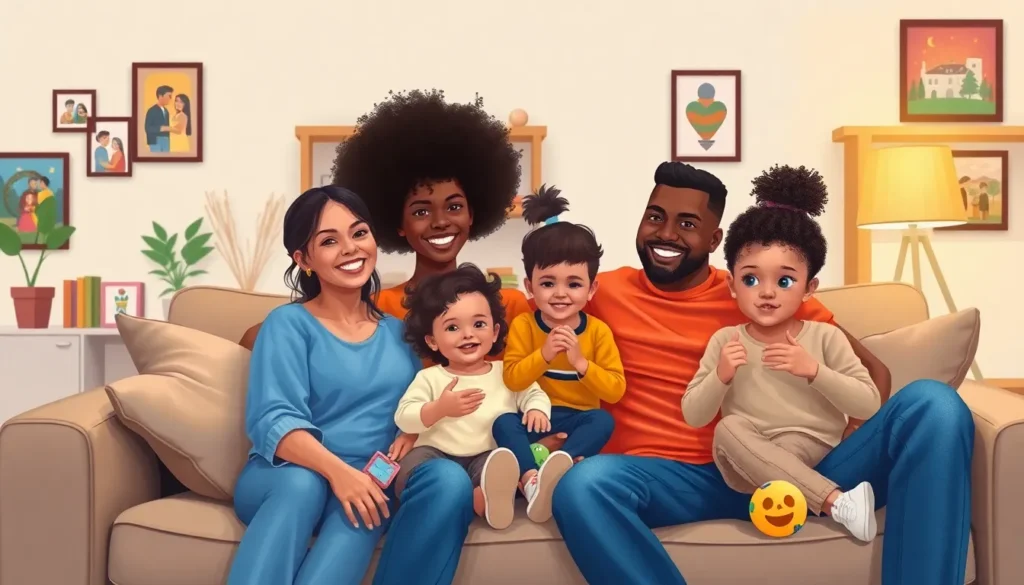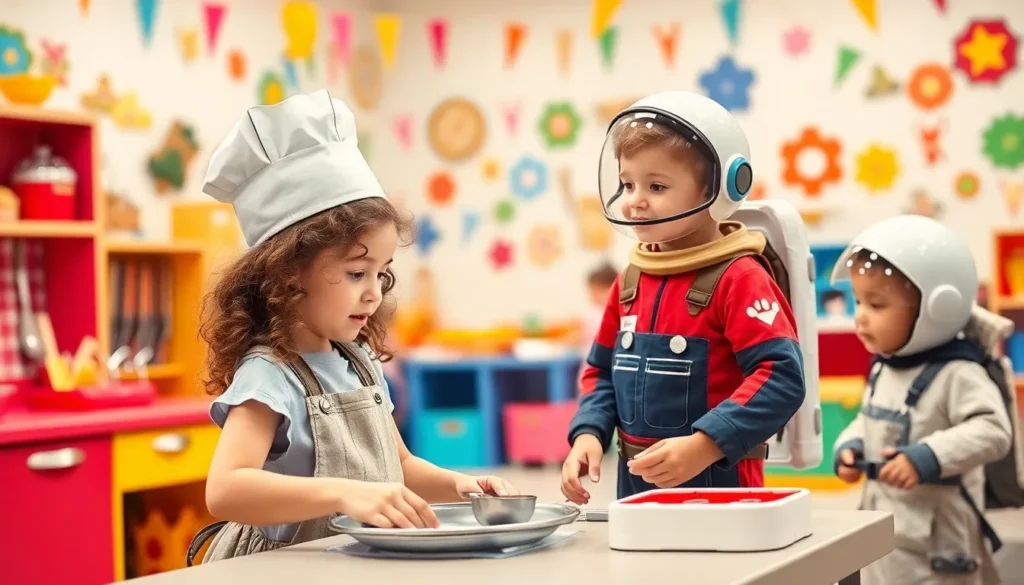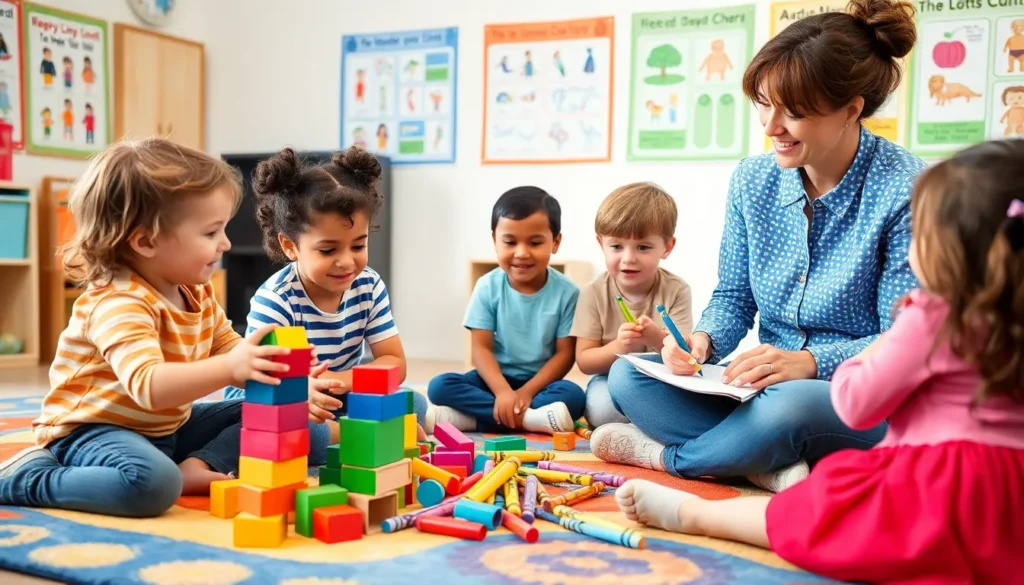Table of Contents
ToggleAdoption counseling isn’t just a buzzword; it’s a lifeline for many navigating the emotional rollercoaster of adoption. Picture this: a compassionate guide who helps prospective parents and birth parents alike sift through the whirlwind of feelings, questions, and sometimes, a few awkward family dinners. It’s like having a GPS for the heart—keeping everyone on track while avoiding those emotional potholes.
In a world where adoption can feel like an unscripted reality show, counseling provides the support needed to make informed decisions. With expert guidance, individuals can embrace the journey with confidence and clarity. Whether you’re looking to adopt or considering placing a child for adoption, understanding the process and its emotional landscape is crucial. Let’s dive into the world of adoption counseling and discover how it can transform lives and create loving families.
Understanding Adoption Counseling
Adoption counseling plays a critical role in the adoption process, providing essential emotional and psychological support to both prospective parents and birth parents. It helps individuals navigate the emotional complexities that arise throughout adoption.
Definition of Adoption Counseling
Adoption counseling refers to professional guidance offered to individuals involved in the adoption process. This counseling aims to address the unique emotional challenges adoption entails. Trained counselors work to create an open environment where feelings can be expressed freely. They also equip individuals with tools to process emotions, make informed decisions, and foster connections. Such support can include individual sessions, group therapy, or workshops tailored to specific needs.
Importance of Adoption Counseling
Adoption counseling significantly enhances the adoption experience for all parties involved. It provides birth parents with the emotional support needed during the decision-making process, helping them explore their feelings about placing a child for adoption. Prospective parents gain insights into the emotional landscape of adoption, preparing them for the complexities they may face post-adoption. Studies indicate that those who participate in counseling report improved mental well-being and stronger relationships. Adoption counseling promotes understanding, reduces feelings of isolation, and provides guidance, ensuring that families form on solid emotional foundations.
The Role of Adoption Counselors

Adoption counselors play a crucial role in the adoption process, guiding both prospective and birth parents through their emotional journeys. These professionals offer essential support and resources to help individuals navigate complex feelings.
Services Offered by Adoption Counselors
Adoption counselors provide diverse services tailored to the needs of clients. They conduct individual and group counseling sessions, facilitating discussions that explore emotions related to adoption. Workshops on various topics, such as preparing for home studies and understanding legal processes, enhance knowledge. Counselors also offer mediation services, helping birth parents and adoptive parents communicate effectively. Resource referrals for legal assistance, financial guidance, and support groups create comprehensive support networks for clients.
Qualities of a Good Adoption Counselor
Empathy stands out as a vital quality in an adoption counselor. They need to understand and validate the emotional experiences of clients. Strong communication skills allow them to listen actively and provide clear guidance. Patience is essential, as clients may require time to process their feelings. Additionally, counselors should demonstrate cultural competence, respecting diverse backgrounds and family structures. A non-judgmental attitude fosters a safe space for clients to express themselves openly.
The Adoption Counseling Process
The adoption counseling process involves various stages aimed at supporting birth and prospective parents. Each stage provides essential guidance through emotional challenges.
Initial Assessment
Initial assessment identifies individual needs, emotions, and expectations of clients. Counselors conduct personal interviews to understand unique circumstances surrounding each adoption scenario. This step is crucial, as it sets the foundation for tailored counseling sessions. By evaluating personal histories, feelings, and readiness, counselors create a roadmap for the adoption journey. It’s important for clients to share their concerns openly, as this transparency aids counselors in developing effective support strategies. Gathering this information fosters a deeper connection between counselors and clients.
Support During the Adoption Journey
Counselors provide ongoing support throughout the entire adoption journey. They offer individual sessions to address emotional challenges and group sessions for shared experiences. Communication workshops enhance understanding between birth and adoptive parents, promoting healthy interactions. Additionally, counselors introduce coping techniques and resources to assist with adjustment. These supportive measures ensure clients navigate the complexities of adoption smoothly. The goal remains to empower families with the knowledge and skills needed for success, ultimately leading to stronger, healthier family dynamics.
Benefits of Adoption Counseling
Adoption counseling offers significant advantages for both birth parents and adoptive families, fostering emotional health and stronger relationships throughout the process.
Emotional Support for Birth Parents
Birth parents often face intense emotions during the adoption process. Counseling serves as a safe space where they can explore feelings of loss, grief, and anxiety. Trained counselors provide validation, allowing birth parents to feel understood and less isolated. They also equip individuals with coping strategies tailored to each unique situation. In sessions, birth parents can connect with others who share similar experiences, creating a supportive community that combats loneliness. Studies reveal that birth parents engaged in counseling report an improved emotional state, leading to healthier decision-making and increased resilience during challenging times.
Guidance for Adoptive Families
Adoptive families encounter distinct challenges as they navigate their journey. Counselors play a vital role by offering guidance on integration and attachment issues. Each session emphasizes communication techniques, fostering understanding between parents and adopted children. Workshops help adoptive families learn about the adoption process, including legal aspects and home studies. Individual counseling sessions address specific family dynamics, enhancing relational health. Parents gain insightful strategies for supporting their children’s emotional needs, thereby promoting a nurturing environment. As a result, families experience a smoother transition and establish stronger bonds throughout their adoption journey.
Adoption counseling serves as a crucial element in navigating the emotional intricacies of the adoption process. By providing tailored support and resources, counselors empower both birth and prospective parents to face their unique challenges with confidence. This professional guidance fosters healthier relationships and emotional well-being, ultimately paving the way for stronger family dynamics.
As individuals embark on their adoption journeys, embracing the benefits of counseling can significantly enhance their experiences. By prioritizing emotional support, they lay the groundwork for loving and resilient families built on understanding and connection.










